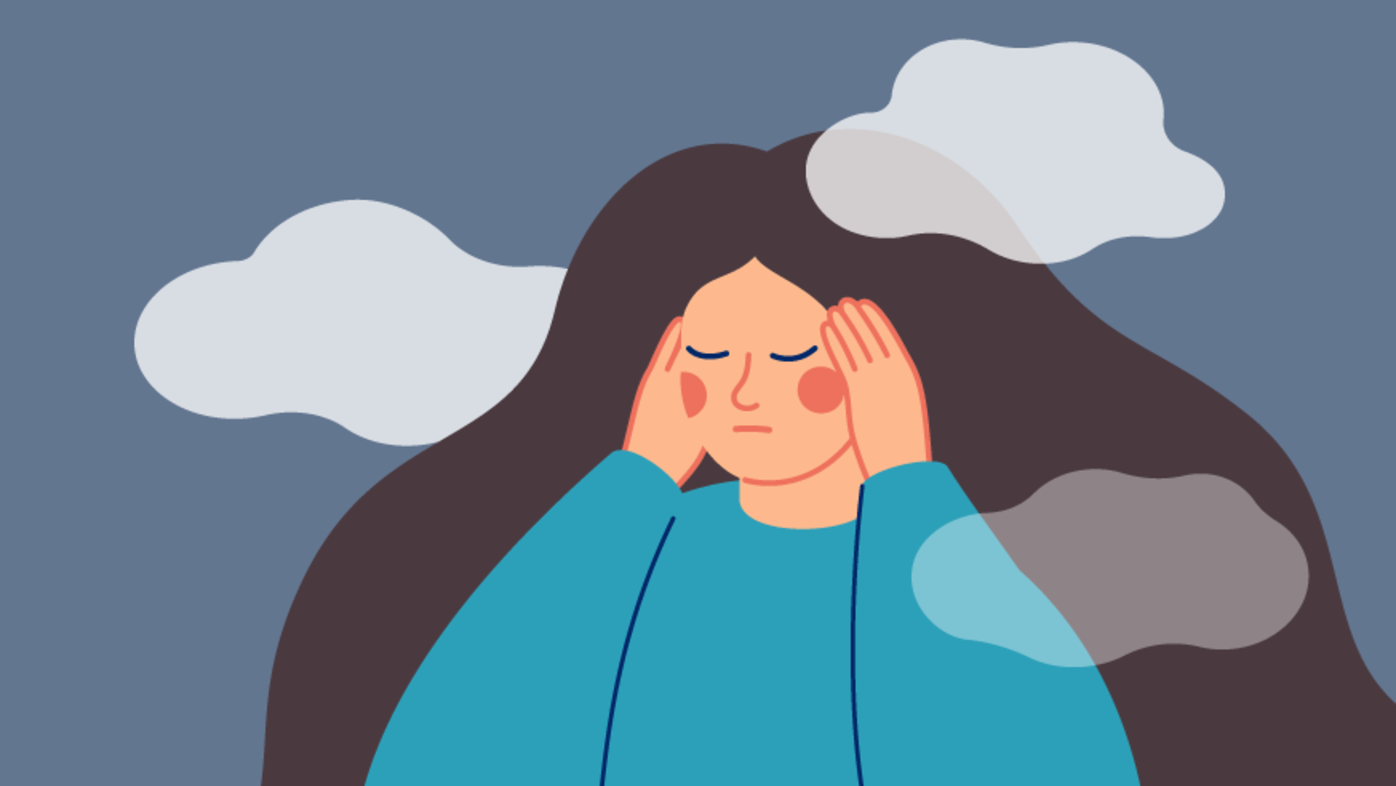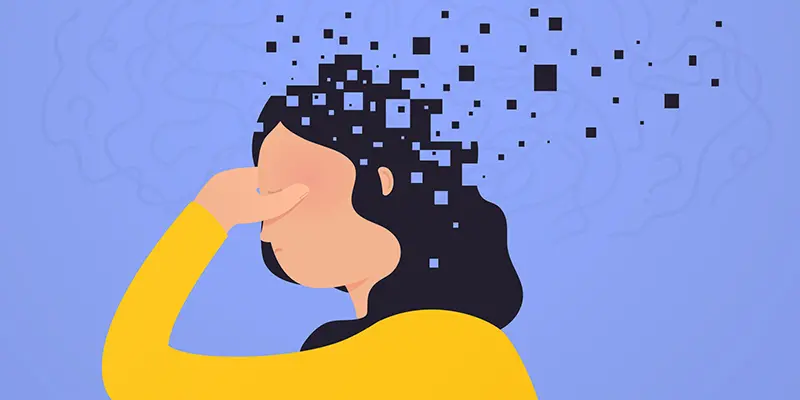What is Brain Fog
Feb 28, 2024 By Madison Evans
Are you ever feeling like your thoughts are confused and fuzzy? It's almost as if a fog has set in on your brain. You may be experiencing what is known as "brain fog" - a symptom of many health conditions that can impair daily functioning.
There are methods you may do to manage and alleviate the problem, even if this emotional state might occasionally feel crippling.
In this blog post, we'll go into great detail about what brain fog is, how it affects our lives today, its possible causes, and various remedies.
Definition of Brain Fog

Brain Fog is a condition in which mental clarity and concentration are impaired. It can cause difficulty remembering, focusing, concentrating, problem-solving, decision-making, and other cognitive tasks.
The symptoms of Brain Fog vary from person to person, but some common ones include trouble thinking clearly or focusing, poor memory recall, disorganization, and confusion.
You might also feel unmotivated, have trouble putting your thoughts into words, think slowly or digest information slowly, or even feel depressed.
Potential Signs and Symptoms of Brain Fog

Brain fog can manifest itself in a variety of ways. Some of the most common signs and symptoms include:
- Difficulty concentrating, remembering, or making decisions
- Feeling disorganized and overwhelmed
- Poor short-term memory
- Mental exhaustion or fatigue even after a restful sleep
- Low motivation or apathy
- Confusion and difficulty expressing thoughts
- Clumsiness or difficulty multitasking
You may be dealing with brain fog if you're experiencing any of these symptoms. It's important to note that brain fog isn't considered a diagnosable medical condition, but it can indicate an underlying issue.
Possible Causes of Brain Fog
Brain fog can be caused by various factors, including lifestyle choices, diet, physical and mental health issues, and environmental influences. Common causes include:
Stress:
Chronic stress is one of the most common causes of brain fog. Overly stressed people often experience forgetfulness, difficulty concentrating, and feeling “spaced out.”
Hormonal Changes:
Hormonal changes, particularly in women due to menstruation and menopause, can also cause brain fog. A sudden drop or surge of certain hormones can cause forgetfulness, difficulty concentrating, and other brain fog symptoms.
Medications:
Certain medications, especially those used to treat depression or anxiety, can also lead to brain fog. Common side effects of these medications include confusion, lack of focus, and difficulty thinking clearly.
Lack of Sleep:
Not getting enough sleep can lead to fatigue and difficulty focusing. Lack of sleep has been linked to poor memory function, so if you are not getting enough quality sleep, you may likely experience brain fog.
Nutritional Deficiencies:
Nutritional deficiencies, such as vitamin B12 deficiency or iron deficiency anemia, can cause cognitive problems like forgetfulness and difficulty concentrating.
Dehydration:
Dehydration can also lead to brain fog as it impairs cognitive function. Drinking enough water throughout the day is essential for optimal mental performance.
Lifestyle Changes and Treatment for Brain Fog
In addition to the underlying causes of brain fog, lifestyle changes can help alleviate symptoms. Sleeping, exercising, and following a balanced diet are always important for overall health and can help improve mental clarity.
Some people often find relief from brain fog by taking certain supplements or vitamins that enhance cognitive functioning, such as omega-3 fatty acids or B-complex vitamins. However, it’s important to speak to a doctor before taking any supplements, as they can interact with other medications or supplements you may be taking.
In some cases, brain fog can be improved by prescription medication prescribed by a healthcare provider. Certain antidepressants and anti-anxiety drugs have been known to reduce brain fog symptoms in some people.
Additionally, some people may benefit from speaking to a mental health professional or therapist and using cognitive behavioral therapy (CBT) or mindfulness-based stress reduction techniques.
Resources We Love: Brain Fog
Brain fog is a condition that can cause difficulty with mental clarity and focus. It is often associated with chronic fatigue syndrome, fibromyalgia, depression, and anxiety. Symptoms of this condition include forgetfulness, confusion, difficulty concentrating, and lack of motivation.
It's important to note that brain fog is not a medical term, and does not necessarily mean something is wrong with the brain. Instead, it's an umbrella term used to describe various physical and psychological symptoms that can affect one’s ability to concentrate, think clearly, and recall memories.
Treatment for brain fog will depend on the underlying cause.
Many people find relief from lifestyle modifications such as regular exercise, stress management techniques, getting enough sleep, and following a healthy diet. Others may need to consult their doctor about medications or therapies to help alleviate symptoms.
How can it affect you?
Brain Fog can affect many aspects of your life, including memory, concentration, productivity, and mood. It can interfere with relationships and make completing everyday tasks or activities difficult.
Brain fog may also be responsible for feelings of depression or anxiety that you may experience. Memory problems such as forgetting where you left something or not being able to recall important facts can be a sign of Brain Fog.
It can also make it difficult to concentrate and focus on tasks,leadingd to lower productivity levels or feeling overwhelmed. In addition, Brain Fog may cause difficulty in social situations, as you may not be able to remember important names or details for conversation. Finally, it can affect your mood and leave you exhausted and unmotivated.
FAQs
How do you get rid of a fog brain?
Brain fog can be reduced by lifestyle changes, such as getting enough sleep, eating a healthy diet, exercising regularly, and reducing stress. Additionally, certain herbs, supplements, and medications may help improve cognitive functioning and reduce brain fog symptoms.
It is important to talk to your doctor before taking any supplements or medications to ensure they are safe. Finally, cognitive-behavioral therapy can help with underlying psychological causes of brain fog.
How do you test for brain fog?
Any medical test does not typically diagnose brain fog. It can be assessed through a physical and mental health evaluation to rule out any underlying medical cause.
Your doctor may also ask you detailed questions about your sleep patterns, diet, and lifestyle habits to better understand how brain fog impacts your life. Additionally, a cognitive assessment can help identify areas of cognitive functioning that could contribute to brain fog.
When is brain fog serious?
Brain fog can be serious if accompanied by other symptoms that could indicate an underlying medical condition. If you experience brain fog, confusion, dizziness, vision changes, or headaches, it is important to talk to your doctor immediately.
Additionally, if you have difficulty thinking clearly for several weeks or more, this could be a sign of a serious health problem and should be addressed with your doctor.
Conclusion
I hope this article has given you a better understanding of what Brain Fog is, how it can affect your life, and how it can be treated. It's important to remember that with awareness comes power – if you or someone you know is struggling with Brain Fog, many options are available to help manage its effects.
Don't hesitate to speak with a medical professional if the condition is affecting your day-to-day life. It's also important to practice healthy lifestyle habits that can help reduce the severity of Brain Fog symptoms.







